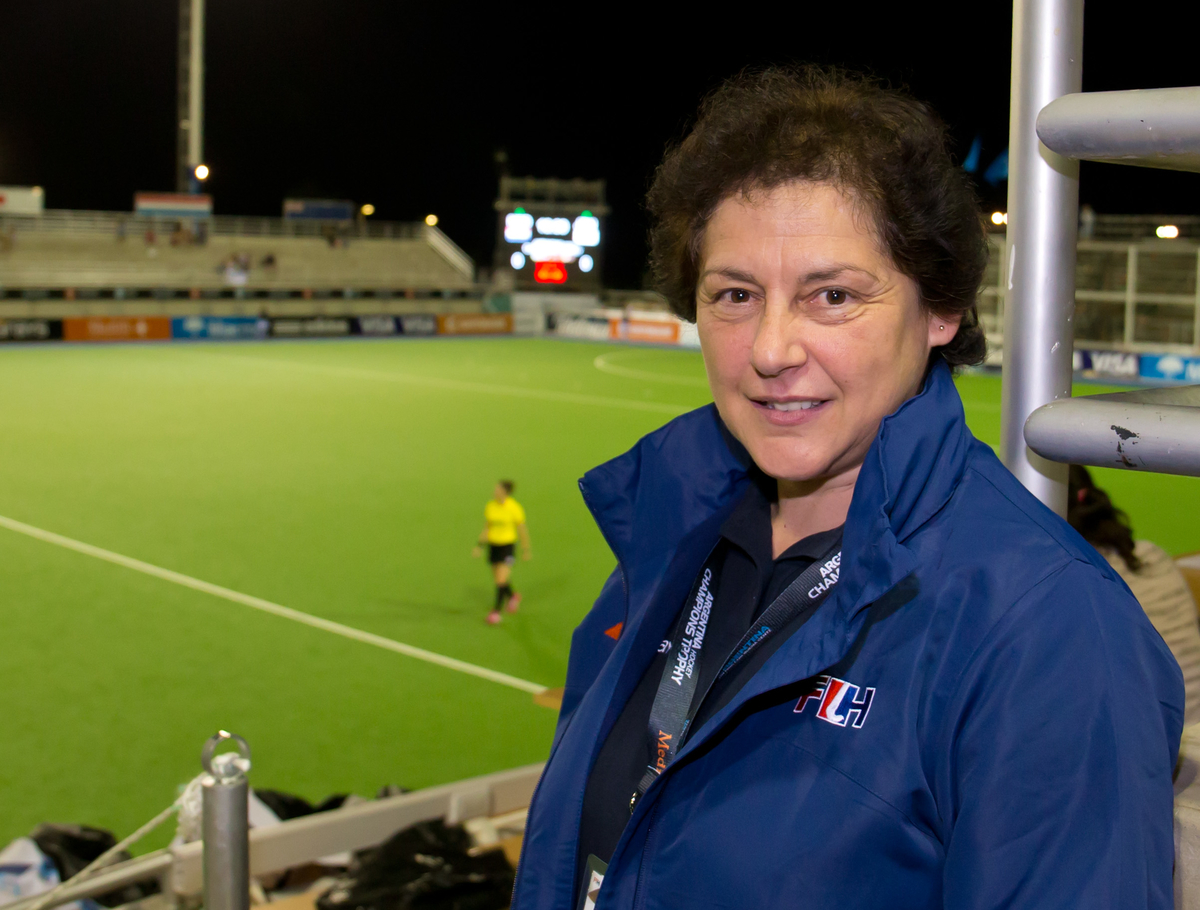
When the FIH appointed Mary Cicinelli as its representative at the Champions Trophy in Mendoza, she was slightly nervous as this was something new on her cv. "I wasn't quite sure what that involved," she says with candour."
But when it comes to hockey administration, or simply human relationships, there is no-one more experienced or more dedicated to fairness, equality and professionalism.
Mary has been involved in hockey administration since she was a teenager; at just 18 years of age she did work with Field Hockey Ontario, and in 1988 she was appointed national manager for Canada at the Seoul Olympics, a career highlight. Nearly 30 years later and the approachable Canadian is now on the Executive Board of the Pan-American Hockey Federation and, for two weeks, the FIH representative at the last major international women’s competition of the year, bringing her years of expertise to the top table of hockey.
"I have been on the FIH Executive Board for two years, but last year I received a letter from Leandro (Negre, the FIH President) asking me if I would be the FIH representative for this event. Then I received a template advising me on the role, and here I am."
The role is very much what the individual makes of it, and Mary's skillset more than qualifies her to meet the demands of the job. But where many people might feel obliged to be in the thick of things, Mary's approach is more subtle. She observes, analyses and assesses situations: one example is her decision to sit away from the main stands, instead observing the whole operation as a fan would.
"By sitting opposite, I could see how all the elements were working. It is just taking a different perspective, and seeing it through the eyes of the public. That is a very different viewpoint to the one the organisers see.
"I see my job here as linking the local organising committee to the FIH team and officials. I am here to support, advise and listen. Since I learnt I would be doing this role I have attended meetings and kept in constant contact with the local organising team, I might help out with specific issues, but primarily I am there to make sure that all the involved groups can work together.”
"During the event I will chair any juries of appeal, but I hope that situation doesn't arise. After the event is over, I will write a report from my perspective, which will help with the organisation of subsequent events. We should see every event as an opportunity to perfect what we are doing."
Mary's background away from hockey is in human resources. She is currently an executive director at the Institute of Work and Health, working with a team of academic researchers back in Toronto, "They have their own unique issues," she says with a wry smile, but ultimately, she says she is a "process person".
"If the policies and procedures are in place and everyone has clear roles and responsibilities, then an event will work well," she says. "For me, the devil is in the detail, but I also have a real sense of fairness, that is a very important part of my integrity."
As a Canadian living in Toronto, combined with her qualifications in human resources, Mary has a very good understanding of cultural differences. This again is a quality that stands her in good stead at international competitions, where there is the potential for cultural misunderstandings. "Sometimes, in the heat of event management, people forget to celebrate what is good. There is always the pressure of 'what could be better?' or 'what are we doing next?'”
"What I see here in Mendoza is a dedicated group of volunteers and staff. There is some real talent and I'm not sure people on the outside realise how talented everyone is – or how professional and dedicated to the sport they are."
And that dedication to the sport starts at the top. When Mary spoke about what would be her perfect competition, she said: "One in which all the athletes had a great experience; all the fans saw a fabulous competition, and the team behind the event was working well together and had a great time too. And everyone should remember to take a moment to celebrate."
Source: FIH
